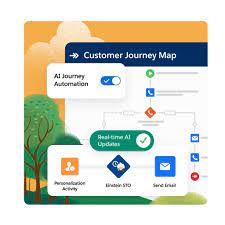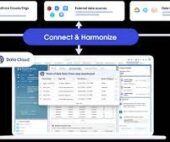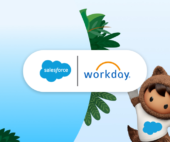The marketing landscape is evolving rapidly, with brands increasingly relying on data to drive customer engagement. Personalization vs Privacy in Marketing.
While organizations anticipate a surge in data sources, achieving a comprehensive view of customers remains a challenge for many. Privacy regulations like GDPR and changes in tech policies, such as Apple’s, have significantly impacted how marketers utilize data. Despite efforts to transition away from third-party data, many still partially depend on it, necessitating a shift towards zero- and first-party data. Marketers are exploring various strategies to adapt, including incentivizing customers to share information and investing in AI technologies to enhance customer experiences and operational efficiency.
However, there’s a concerning decline in the proportion of marketers going beyond regulatory requirements to safeguard customer privacy. As customer preferences continue to evolve, bridging online and offline experiences remains a priority, with AI playing a pivotal role in integrating these channels seamlessly.
This Tectonic insight highlights several key trends and challenges in the realm of marketing and customer engagement, particularly focusing on data utilization, privacy regulations, AI adoption, and the integration of online and offline channels. Here’s a breakdown of the main points:
- Data Utilization and Integration:
- Brands are recognizing the importance of data-driven customer engagement and anticipate an increase in the number of data sources.
- Despite this anticipation, only a small percentage of organizations have achieved a comprehensive 360-degree view of their customers, with many relying on customer data platforms (CDPs) for this purpose.
- There’s a shift towards zero- and first-party data due to changes in privacy regulations, but many marketers still partially rely on third-party data.
- Impact of Privacy Regulations:
- Privacy regulations like GDPR and Apple’s privacy policy update have significantly affected digital analytics.
- Marketers are moving away from third-party data sources and have defined strategies to adapt to these changes, including offering incentives for customers to share information.
- Privacy and Security Measures:
- While marketers acknowledge the importance of privacy and security, there’s a decline in the percentage of marketers going beyond regulations and industry standards to protect customer privacy.
- Strategies to prepare for a cookieless future include investing in technologies like CDPs and reducing internal data silos.
- AI Adoption:
- Marketers are increasingly turning to AI to enhance customer experiences and operate more efficiently, with automation being a key focus.
- A growing percentage of marketers have fully defined AI strategies, reflecting the recognition of its benefits in improving the customer journey.
- Integration of Online and Offline Channels:
- Despite the increasing online presence of customers, a significant percentage still prefers non-digital channels.
- Marketers are leveraging AI to bridge the gap between online and offline experiences, emphasizing the importance of integrating both channels seamlessly.
Overall, this insight highlights the complex landscape of modern marketing, where data, privacy regulations, AI, and omnichannel integration play crucial roles in shaping customer engagement strategies. Marketers must navigate these challenges while prioritizing customer privacy and delivering personalized experiences across various touchpoints.














